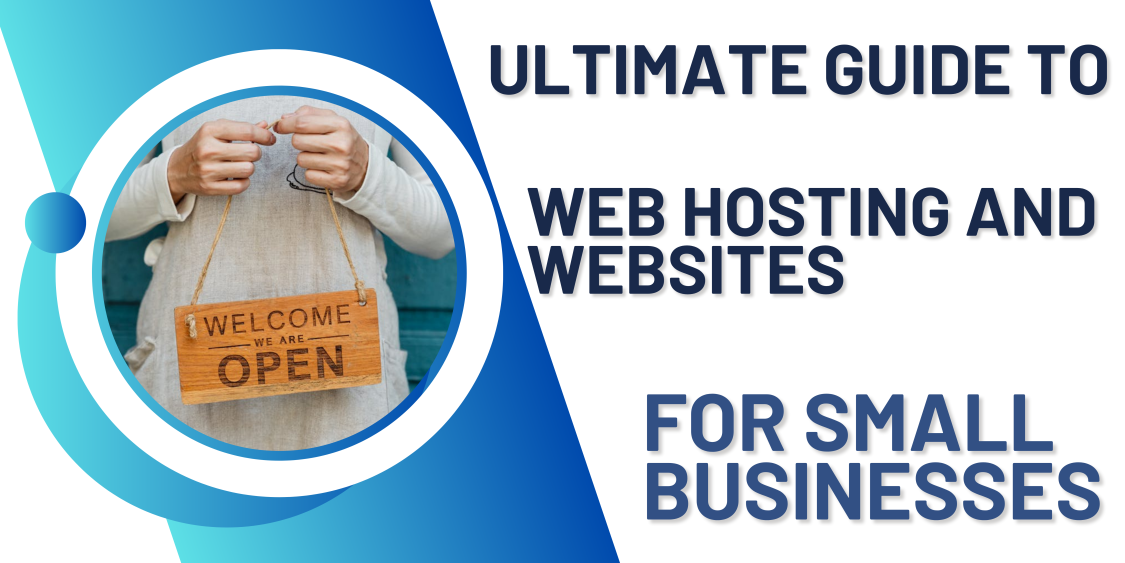Table of Contents
In today’s fast-paced digital landscape, having a strong online presence is more important than ever for small businesses. Whether you’re in eCommerce, healthcare, real estate, restaurants, education, fitness, fashion, or nonprofits, your website acts as your digital storefront, welcoming customers and clients alike. At the heart of a successful website lies reliable web hosting. Whether you’re embarking on the journey of launching your first website or looking to optimize an existing one, understanding how web hosting impacts your small business’s success is essential. Let’s explore how the right web hosting can help you thrive online!.
What is Web Hosting, and Why Does It Matter?
Web hosting is a service that allows individuals and businesses to publish their websites on the internet. A hosting provider offers the necessary technologies and resources, such as storage space, bandwidth, and security, ensuring your website is accessible 24/7.
For small businesses, the right web hosting can mean the difference between a website that loads quickly, operates smoothly, and converts visitors—and one that frustrates users and pushes them toward competitors. Here’s why web hosting is critical for businesses in various sectors:
- Performance and Speed: A slow-loading website can deter customers from exploring your services.
- Reliability: Frequent downtime can harm your credibility and hurt sales.
- Scalability: As your business grows, your hosting plan should grow with it.
- Security: Secure hosting protects sensitive customer data and prevents cyberattacks.
- SEO Impact: Google favors fast, secure, and reliable websites in search rankings.
The Role of Websites in Today’s Business Landscape
A website is more than just an online presence—it’s an extension of your brand. It tells your story, highlights your expertise, and provides a platform for engaging with your audience. Here’s how businesses in different sectors can leverage their websites effectively:
1. eCommerce Retailers
For eCommerce businesses, your website is your primary sales channel. Reliable web hosting ensures your online store runs smoothly even during high traffic periods, like holiday sales or flash deals. With features like fast load times, mobile optimization, and secure payment gateways, your website can provide a seamless shopping experience.
Best Practices for eCommerce Websites:
- Opt for hosting plans with high bandwidth to handle large product inventories and user traffic.
- Use SSL certificates to secure transactions.
- Regularly update your site to improve user experience and security.
2. Healthcare Providers
Healthcare professionals need websites that inspire trust and provide easy access to information. A professional, HIPAA-compliant website can feature appointment scheduling, patient portals, and informative blogs.
Best Practices for Healthcare Websites:
- Choose hosting with robust security measures to protect patient data.
- Prioritize uptime to ensure round-the-clock access to critical resources.
- Optimize your website for local SEO to reach nearby patients.
3. Real Estate Owners and Agents
Real estate websites often showcase properties, provide market insights, and connect buyers with agents. A visually appealing, fast-loading website can set you apart in a competitive market.
Best Practices for Real Estate Websites:
- Invest in hosting with fast load times for high-resolution images and virtual tours.
- Integrate lead capture forms and contact features.
- Use IDX (Internet Data Exchange) for property listings.
4. Restaurants and Food Services
For restaurants, a well-designed website can drive reservations, highlight menus, and showcase customer reviews. Reliable hosting ensures your website is always accessible during peak dining hours.
Best Practices for Restaurant Websites:
- Use hosting with easy scalability for seasonal traffic surges.
- Incorporate online ordering and reservation tools.
- Optimize your website for mobile users.
5. Educational Institutions
Educational websites provide information for students, parents, and staff while offering resources like online courses, event calendars, and application forms.
Best Practices for Education Websites:
- Use hosting with ample storage for multimedia content like videos and eBooks.
- Ensure high uptime for uninterrupted access to resources.
- Implement strong security to protect sensitive data.
6. Fitness and Sports Services
Fitness centers, gyms, and sports clubs rely on websites for scheduling, memberships, and community engagement. A responsive, dynamic website can be a game-changer.
Best Practices for Fitness Websites:
- Use hosting with support for video streaming for online classes.
- Incorporate booking systems and membership portals.
- Optimize for mobile to cater to on-the-go users.
7. Fashion and Apparel Brands
For fashion brands, the website is both a storefront and a style statement. High-quality images, fast-loading pages, and seamless checkout processes are essential.
Best Practices for Fashion Websites:
- Use hosting with a Content Delivery Network (CDN) for fast image loading.
- Integrate social media to showcase user-generated content.
- Invest in hosting with robust eCommerce capabilities.
8. Digital Products and Services
Digital product providers need websites that highlight their offerings, provide demos, and facilitate easy downloads or subscriptions. Secure, reliable hosting is crucial for digital product delivery.
Best Practices for Digital Product Websites:
- Use hosting with high uptime guarantees to ensure access.
- Optimize for fast load times to enhance user experience.
- Incorporate strong security measures for subscription-based models.
9. Nonprofits and Charities
For nonprofits, a website is a tool for raising awareness, collecting donations, and sharing impactful stories. Hosting should prioritize security and reliability to build donor trust.
Best Practices for Nonprofit Websites:
- Choose hosting with strong data protection.
- Use features like donation tracking and volunteer sign-ups.
- Optimize for SEO to attract more supporters.
Choosing the Right Web Hosting for Your Business
Selecting a hosting provider can feel overwhelming, but understanding your specific needs can simplify the process. Here’s a quick breakdown:
- Shared Hosting: Ideal for small websites with low traffic.
- VPS Hosting: A step up from shared hosting, offering better performance.
- Dedicated Hosting: Best for high-traffic websites requiring maximum control and performance.
- Cloud Hosting: Scalable and reliable, perfect for growing businesses.
- Managed WordPress Hosting: Tailored for WordPress websites, offering ease of use and optimized performance.
Key Features to Look For:
- Uptime Guarantee: Look for providers with a 99.9% uptime guarantee.
- Speed: Choose hosting with SSD storage and caching features.
- Security: Ensure the provider offers firewalls, malware scans, and SSL certificates.
- Scalability: Opt for hosting that can grow with your business.
- Support: 24/7 customer support is non-negotiable.
Final Thoughts
Your website and web hosting are the foundation of your online success. By choosing the right hosting plan and optimizing your website, you can create an engaging and reliable digital presence that drives traffic, builds trust, and converts visitors into loyal customers.
Whether you’re an eCommerce retailer looking to scale, a healthcare provider aiming to connect with patients, or a nonprofit raising awareness for a cause, investing in the right web hosting and website strategy can make all the difference. Take the time to evaluate your needs, prioritize user experience, and build a website that truly represents your brand.
Get in touch with us today and let’s bring your vision to life!

